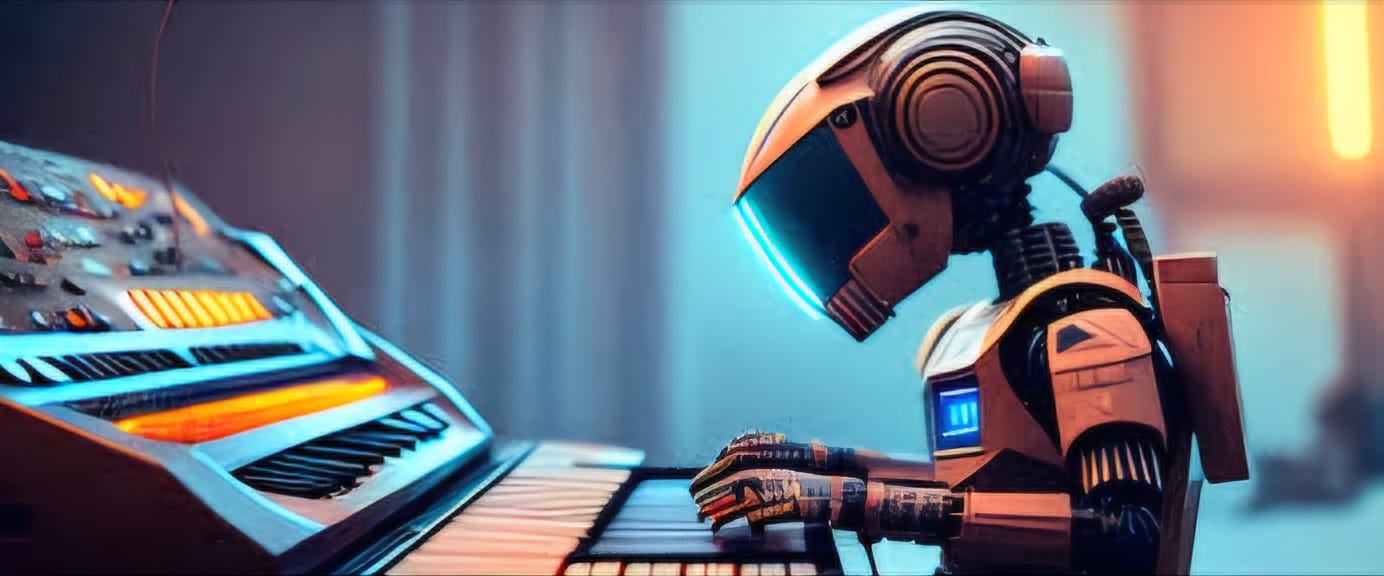In November 2023, The Beatles released their last song "Now And Then," using AI to bring John Lennon's voice back to life. This ground-breaking moment signalled a new era in music production where artificial intelligence is not just a tool but also a collaborator in the creative process.
As we stand at the precipice of this AI revolution in music, it's crucial to examine both the potential and the profound challenges it presents. Let's dive into the world of AI-generated music and explore what it means for artists, labels, listeners, and the very essence of musical creativity.
The Current State of AI Music Generation
Computer music generation has come a long way since the first computer-composed string quartet in 1956. Today, AI tools like Udio, Suno, and Mubert allow users to create “professional-quality” tracks from simple text prompts. These AI platforms claim to generate everything from instrumentals to full songs with lyrics in a matter of seconds.
The capabilities of these tools are expanding rapidly. For instance, Soundraw allows users to modify generated tracks with features like changing melody, instruments, and a built-in mixer. Meanwhile, MusicGen (developed by Meta) can even generate music based on a sample audio input combined with a text prompt.
Implications for the Music Industry
For Artists:
These AI tools claim to be democratizing music production by allowing anyone with an idea to create polished tracks without years of training or expensive equipment. However, it raises huge concerns about over-saturation in an already crowded market and the copyright issues with the data that is used to train these AI models that generate music.
For Labels:
Major record labels are exploring AI's potential for business efficiency and trend prediction. AI analysis of streaming data and social media engagement could revolutionize how new “artists” are discovered and promoted.
For Listeners:
AI companies claim to enhance music discovery through personalized playlists and recommendations. However, as Ohio University's Josh Antonuccio points out:
"We are facing a tsunami of AI-generated songs from amateur musicians to major artists in the years to come."
This flood of content could make it impossible for listeners to find meaningful connections with music.
The Authenticity Dilemma
As AI becomes more sophisticated, questions of authenticity and creativity come to the forefront. Is an algorithm truly creating art? Or is it merely imitating human creativity?
Take the case of "Heart on My Sleeve," where AI voice filters were used to imitate Drake and The Weeknd without their consent, highlighting the ethical concerns surrounding AI-generated music. It raises important questions about copyright, consent, and the value we place on human creativity.
Vinyl Culture's Perspective
At Vinyl Culture, we believe in embracing technological advancements while preserving the essence of human creativity in music. We see AI as a powerful tool that might enhance the creative process but not replace the human touch that makes music truly meaningful.
Our approach is to:
Educate our community about AI music tools
Advocate for ethical use of AI in music production
Support artists in leveraging AI to help with non-creative tasks (e.g. Social Media)
Promote transparency in AI-generated music
In the coming weeks, we'll delve deeper into topics like strategies for meaningful music discovery in the digital age. Together, we can ensure that music remains a vibrant, diverse, and integral part of our lives.
Next week, we'll explore how Blockchain Technology is revolutionizing music rights management and artist compensation. Stay tuned!







